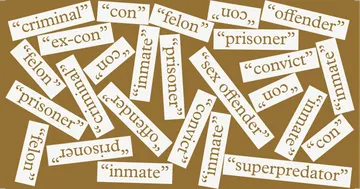More than two-thirds of incarcerated women in America reported having a history of mental health problems — a far higher percentage than their male counterparts, according to a study released Thursday by the Bureau of Justice Statistics.
Although the prevalence of mental health disorders among people in prisons and jails is a well-known problem, the dramatic gender disparity exposed in the new report has been less discussed.
The survey, conducted from February 2011 to March 2012, asked more than 100,000 men and women in hundreds of U.S. jails and prisons whether they had ever been diagnosed by a mental health professional with a psychological disorder such as depression, bipolar disorder, schizophrenia, post-traumatic stress disorder or anxiety. The survey also posed questions about inmates’ mood and emotions in the previous 30 days.
Thirty-nine percent of those surveyed said they had been diagnosed with a mental health condition. About 19 percent experienced an episode of serious psychological distress in the month before being surveyed.
When the data is broken down by gender, the differences are stark.
Although women make up only 7 percent of the prison population, 66 percent of women in prison reported having a history of a mental disorder, almost twice the percentage of men in prison. And one in five women in prison had recently experienced serious psychological distress, while one in seven men had.
A similar gender imbalance was found among those in local jails. Sixty-eight percent of women in jail reported having been diagnosed with a mental health condition, versus 41 percent of men.
Experts don’t fully understand why such a gender disparity exists. “I have never seen a study that establishes the reasons for this,” says Ron Honberg, senior policy adviser at the National Alliance for Mental Illness. “Because of that, we can only speculate, but I believe one factor is that incarcerated women have experienced sexual trauma before their imprisonment at a much higher rate than men. They are also likely more inclined to report psychological distress to the prison mental health services than male inmates.”
The Bureau of Justice Statistics’ researchers also found a disparity between inmates of different races. More than half of the white people in prison, of both sexes, reported a diagnosis of a mental disorder, nearly double the rate for Hispanics and more than 1.6 times higher than black people in prison. The numbers for those in jails were similar.
This finding comes as no surprise to Dr. Robert Cohen, a member of the New York City Board of Correction. According to Cohen, who was director of medical and mental health services at New York City’s Rikers Island jail in the 1980s, the survey responses may not reflect the actual number of inmates with mental health conditions.
Citing a 2015 study on New York City’s jail mental health services, Cohen pointed out that at Rikers, “older white men were directed towards mental health services, while younger black and Hispanic men were directed to solitary confinement, and self harm. I don't think that fact reflects different rates of mental illness, I think it demonstrates racial bias."
Advocates for the incarcerated argue that for all people in prisons and jails — more than 2 million people nationwide — mental health services are lacking at best. “Prisons and jails are not hospitals,” said Eric Balaban, a senior staff counsel with the American Civil Liberties Union National Prison Project. “Not only they are not where inmates should be receiving mental health treatment, they are anti-therapeutic.”
